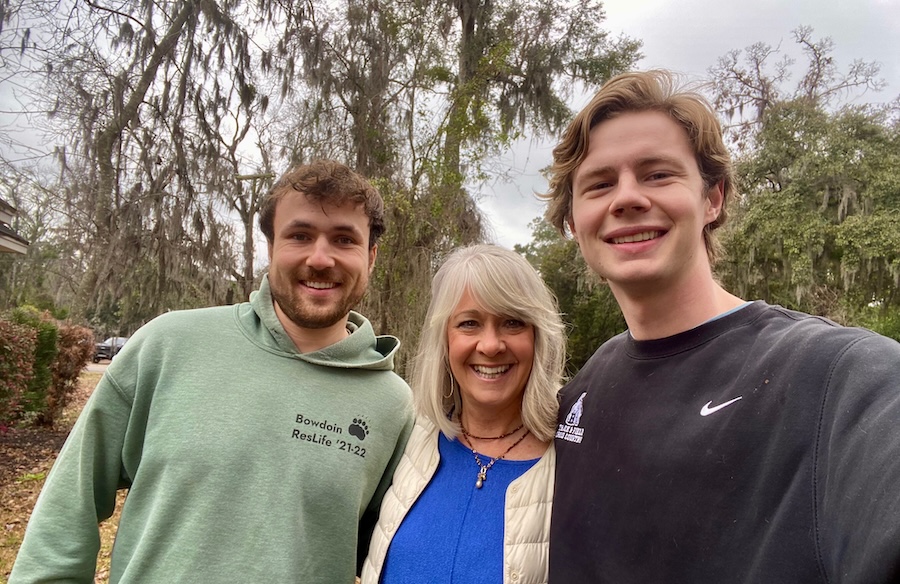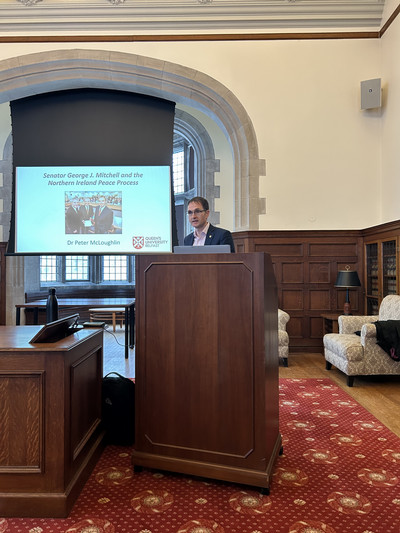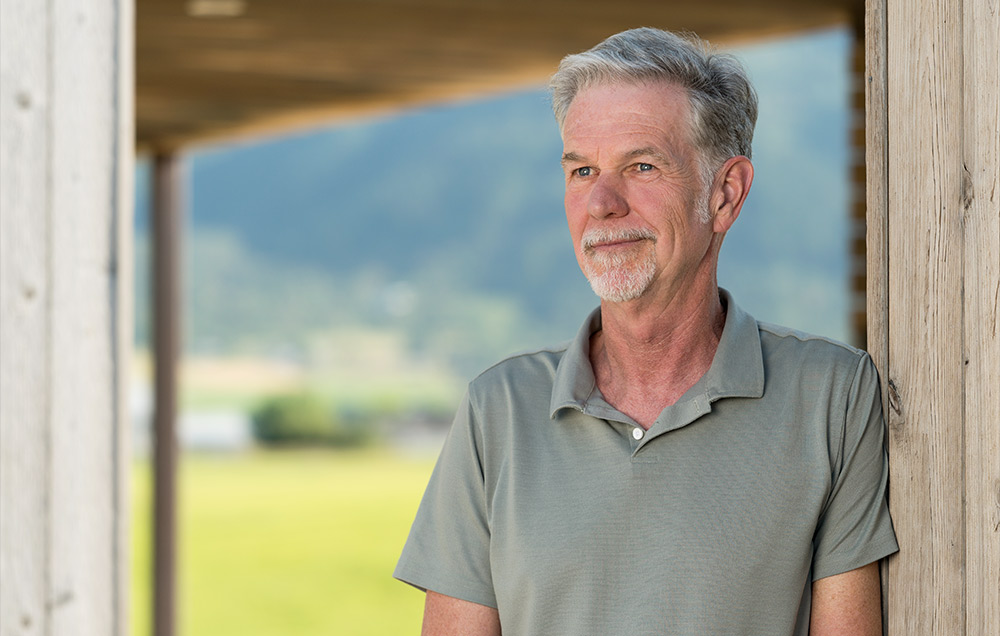Bowdoin Marks Close of Academic Year with Baccalaureate Ceremony
By Tom PorterBowdoin College held its Baccalaureate ceremony Friday, May 24, 2019, in the Sidney J. Watson Arena, marking the official close of the academic year. The College’s 214th Commencement will be held Saturday, May 25.

President Clayton Rose presided over the Baccalaureate ceremony, reflecting on the legacy of Bowdoin alumna Iris Davis ’78. “She passed away a year ago, far too young,” commented Rose.
A gifted athlete, Davis was also an exemplary scholar, an active member of the Afro-American Society, and a keen volunteer in the local community, helping many kids in the Brunswick area.
After graduation, Davis became a public health professional, earning a masters of public health degree at Boston University. She became an environmental scientist for the Commonwealth of Massachusetts, “a position,” said Rose, “that put her in the field and on the front lines of protecting public health and industry workers from contaminants in air, water, and soil."
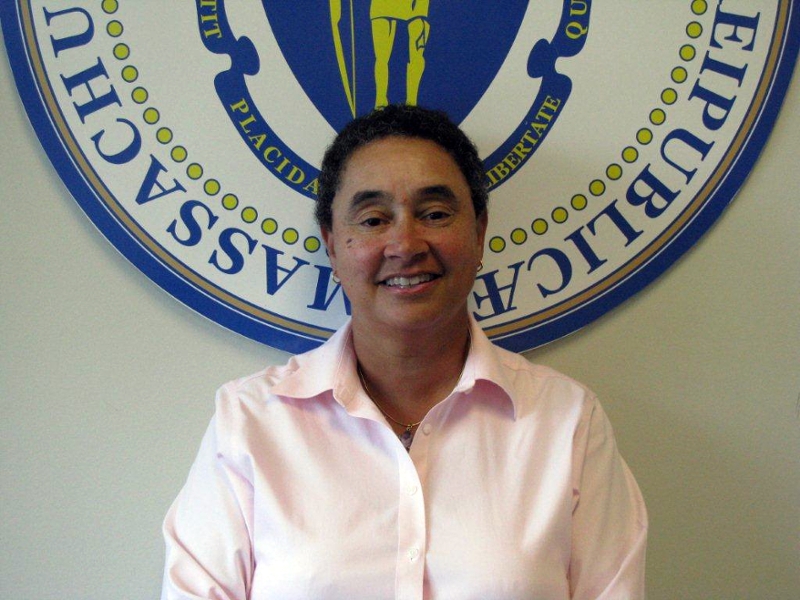
Among her achievements: “She… monitored the capping of Spectacle Island in Boston Harbor, the site of what was once the Boston city dump. In 1990, Iris was the Massachusetts state project manager for the Environmental Protection Agency’s residential lead removal project.”
Throughout her career, said Rose, Davis stayed connected to Bowdoin, serving, among other things, as president of the Alumni Council. “As a trustee, Iris was deeply engaged in considering Bowdoin’s future. She asked insightful questions, provided wise counsel, and approached the work with realism, warmth, and a sense of fairness… she built community wherever she went.”
Read President Clayton Rose’s remarks.
Voices from Bowdoin’s Past
In his last Baccalaureate address as Dean of Student Affairs, Tim Foster delivered “Voices from Bowdoin’s Past,” a Baccalaureate tradition in which he spoke of one of Bowdoin’s most illustrious alumni, Henry Wadsworth Longfellow, Class of 1825.
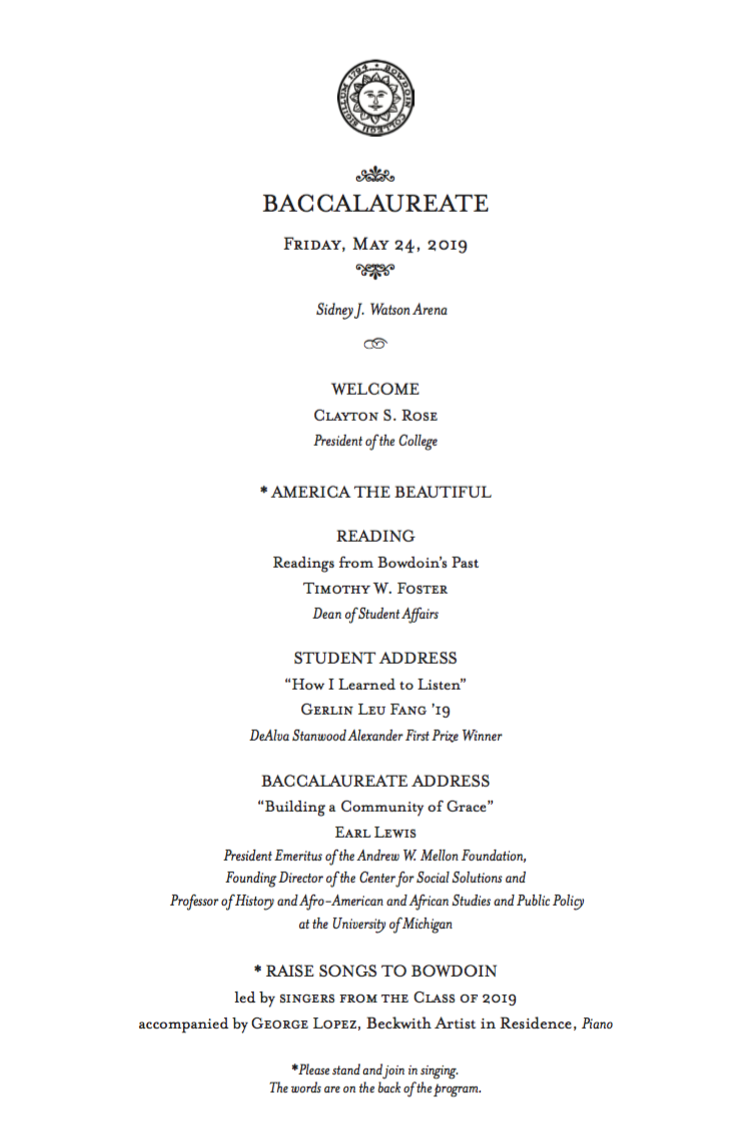
Longfellow, it seems, was an upbeat college student. In one of his letters home to his family in Portland, Maine, he wrote, “…I feel far better contented here–far more happy, and far less inclined to be low-spirited, than has ever been the case at any former period…You must not be surprised when I tell you, I wish to not come home. No–not yet!–not for weeks–months!”
When senior year rolled around, Longfellow succumbed to a bit of pre-graduation anxiety. In a letter to his sister, he wrote, “…in five weeks we shall be set free from college…Then comes Commencement–and then–and then–I cannot say what will be after that.” He pleaded with his skeptical father to support his desire to become a writer rather than go into law.
Foster suggested that parents might take comfort from this story of tense parent-child interaction. “Parents and family, be gentle. It turned out quite well for Henry and it will work out for your daughter or son as well,” he said.
Read Tim Foster’s “Voices from Bowdoin’s Past.”
DeAlva Stanwood Alexander Prize Winner Gerlin Leu Fang ’19
In her address, “How I Learned to Listen,” Fang talked about how learning new languages helped her grow as a person. She recounted the linguistic challenges she faced as a Mandarin-speaking child from Hangzhou, China, when her family moved to Houston, Texas, in 2005.
“We lived in a prominently Hispanic neighborhood with many children learning English at school,” she told the audience, “but they would sneak in Spanish with each other while I couldn’t.” Fang described how she was initially unable to distinguish between English and Spanish and didn’t even know enough to ask for permission to go to the bathroom.
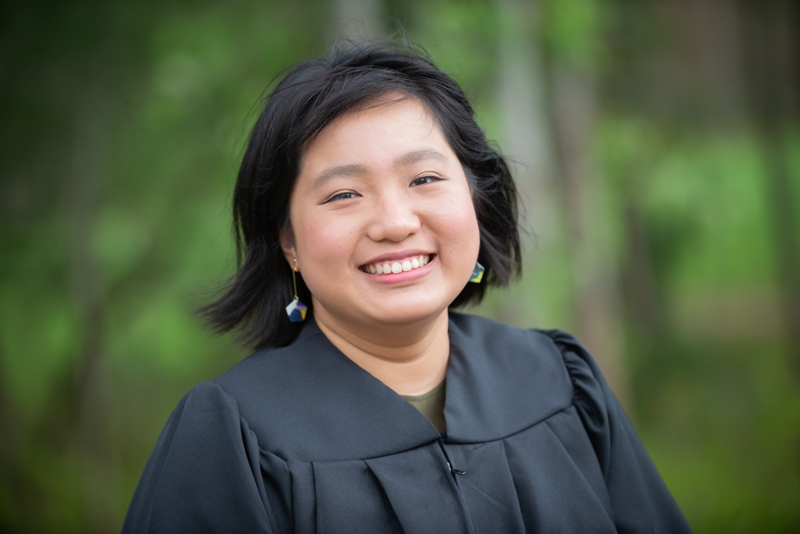
Fang described how she learned English “from books, from television, and from making phone calls to companies on behalf of my mom.” She expanded her linguistic repertoire when she came to Bowdoin. “Under the freedom of the liberal arts education and the general cluelessness of a first-year student,” she said, “I began learning Japanese, the language of China’s historical and political nemesis.”
As she learned new languages, and spent semesters abroad in Japan, Sri Lanka, and Indonesia, Fang said she became a better listener, and therein lies a lesson, she concluded. “Therefore, Class of 2019, friends and families of the Bowdoin community, I urge you, in addition to finding and exercising your voice, to also listen to and learn to speak the languages of the people that you will encounter in life.”
Read “How I Learned to Listen” by Gerlin Leu Fang ’19
Keynote Address: Earl Lewis
A noted social historian, award-winning author, and educational leader, Earl Lewis is the founding director of the new University of Michigan Center for Social Solutions. He is also president emeritus of The Andrew W. Mellon Foundation. His keynote address was called “Building a Community of Grace.”
Reflecting on the experiences of family members who attended Bowdoin, he described how the College’s “deep commitment to the liberal arts” hones intellectual skills but also delivers important lessons “about membership in community.” In particular, Lewis chose to expound upon the idea of grace, meaning the ability to be thoughtful, respectful, and forgiving of other people.
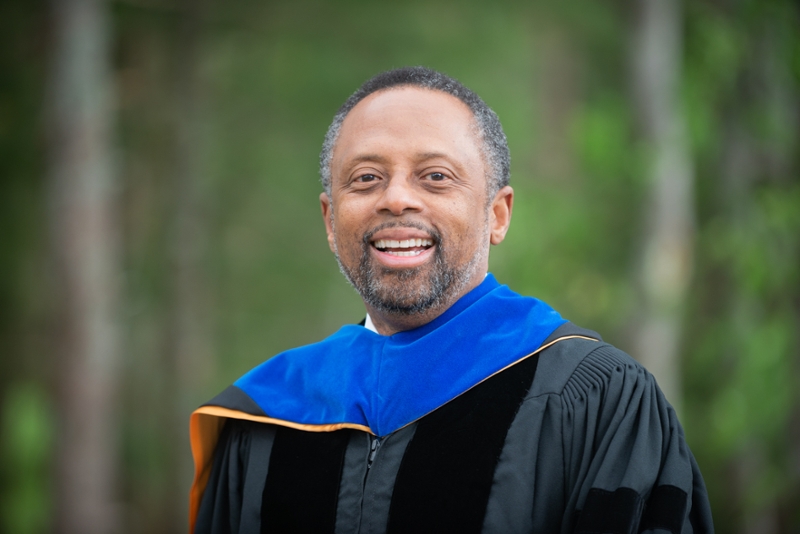
“How, in this highly fractionated age, do we build not just vibrant, or good, or inclusive communities, how do we build grace-filled communities?” asked Lewis. There are four tenets of a grace-filled community, he suggested.
“We begin with responsibility,” Lewis told the audience. “A grace-filled community is not consumed with rank or status,” he explained. “It practices the principle of open communication and structured action,” he continued, meaning that “no one dares say, ‘it’s not my job so I don’t have to worry about it.’”
The second principle of a grace-filled community, according to Lewis, is that “no one gets a pass.” Community members, he said, must feel no sense entitlement, “for they know what they did yesterday in no way guarantees what they will accomplish in the future.”
Third, said Lewis, “members of a grace-filled community exhibit the patience to embrace each encounter as another teaching moment, no matter how many times you have heard the question posed or how off putting the questioner becomes.”
The final tenet of a grace-filled community, said Lewis, is that it “is peopled by those who care about others as much as they care about themselves.”
Baccalaureate Music
The audience was led through renditions of “America the Beautiful” and “Raise Songs to Bowdoin” by singers from the Class of 2019 and George Lopez, Beckwith Artist in Residence, on piano.
